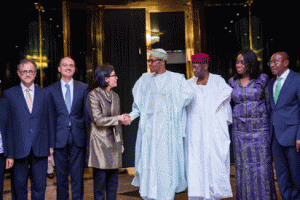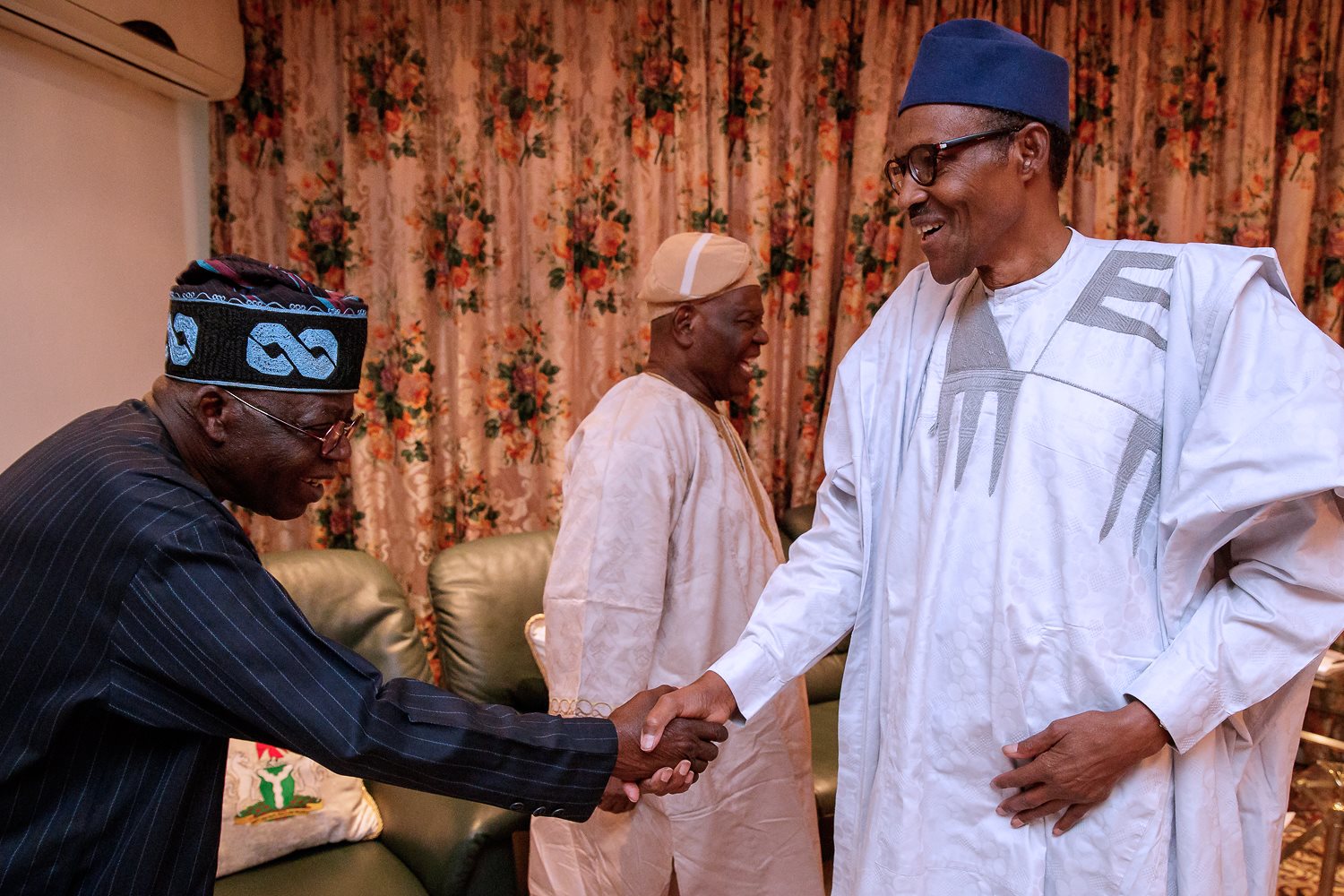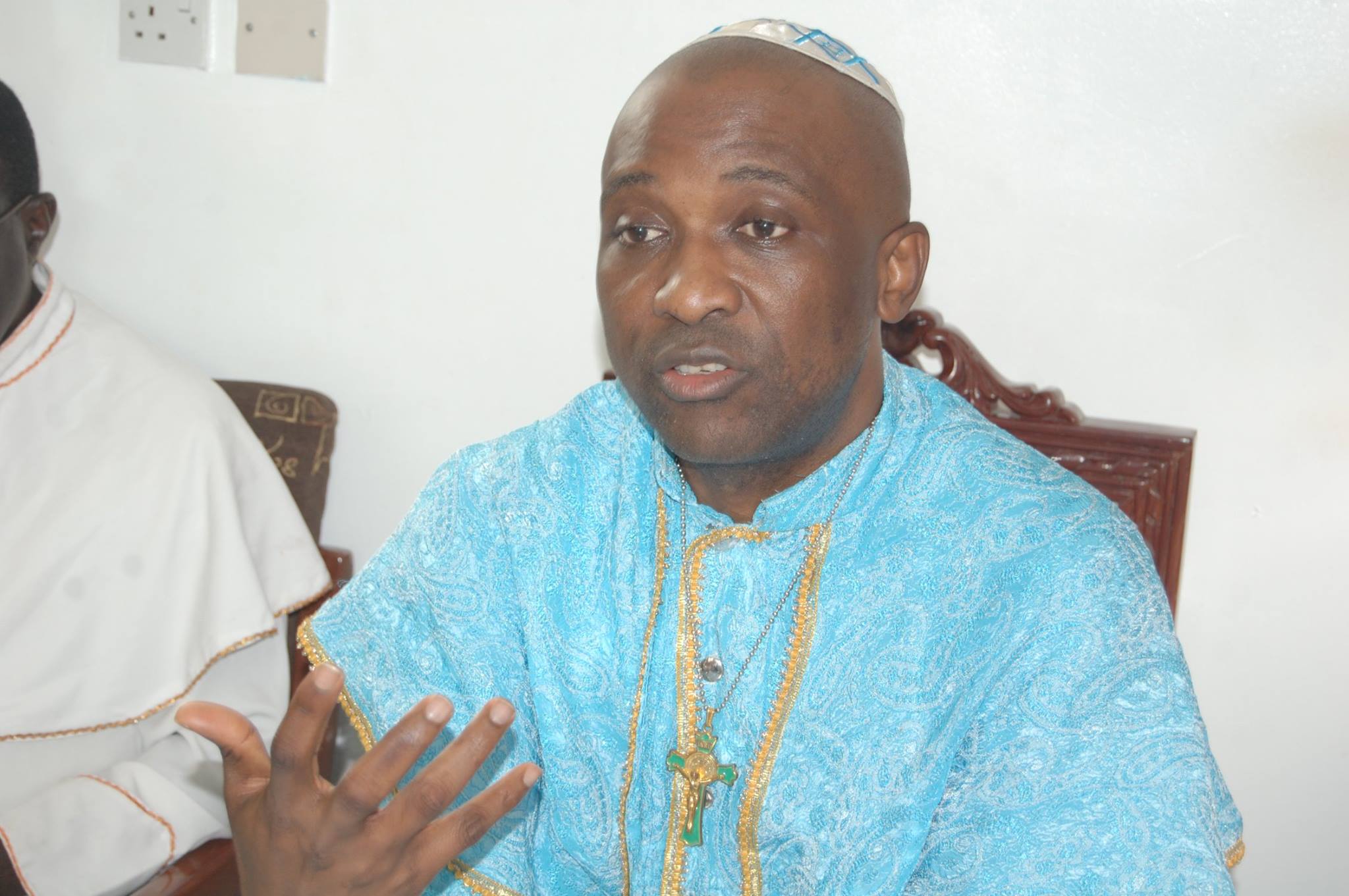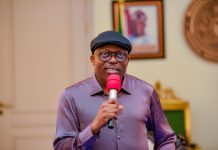World Bank has pledged to support Nigeria curb insecurity as well of rehabilitate the Internally Displaced Persons, IDPs who were mainly victims of the Boko Haram insurgents in the North-east region.
Besides, the global Bank also showed concerned in the economic growth and development of the country, saying it would assist Nigeria in the diversification of its economy.
The assurances were the fallout of the meeting between the visiting managing director and chief operating officer of the World Bank, Ms Sri Mulyani Indrawati and President Muhammadu Buhari at the Presidential Villa, Abuja on Wednesday, April 27, 2016.

Briefing state house correspondents alongside the minister of finance, Mrs. Kemi Adeosun after the meeting, Ms Indrawati said also hailed President Buhari’s commitment to job creation, poverty eradication and eradication of corruption. Revealing that she had also met with some 5 governors, the World Bank scribe added that the bank was willing to key into the objectives of the present administration.
She said: “I am here with our team to visit Nigeria, this is my first visit to this country. It reminds me a lot about my own country in Indonesia. This is a very short visit but very productive.
“This is a good opportunity for us to discuss with the government to understand the challenges the Nigerian economy is facing just like many other countries in the world which is now facing weak global economy, low commodity price in goods and oil price, challenge of climate change and insecurity. These are all the issues that we discussed.
“We also see that Nigeria and the leadership of President Muhammadu Buhari is now launching the objective of restoring stability and security, the second one is creating jobs and eradicating poverty, the third is fighting corruption.
“I think these are very commendable goals and we discussed with the government about how we can support the law in order for the government and its leadership to achieve the goals.
“We had the opportunity to meet with five governors of different states in order to discuss more on our programmes to support with the North-East region, especially dealing with internally displaced people and how to restore both the livelihood of the people with the development programme. So we discussed both in terms of what is the area of priority, the mode of engagement and the operational details of how this is going to be used in the most effective way.
“We also discussed more in terms of the need to diversify the economy away from oil. We also discussed on how to improve the fiscal side with the minister of finance under her leadership and try to improve on the revenue side, whether to improve collection tax as well as to fight against inefficiency and corruption.
“That is one of the areas which is commendable. We would like to support all these objectives in order for Nigeria to have a healthy, stronger and transparent budget, which can be very useful and effective in addressing the issue of poverty and creating a healthier and inclusive growth.
“We also discussed how to support the management of natural resources, especially the oil, which I think Nigeria has its own reform agenda to improve the governance and management of the oil sector.
“I think that is important goal which is being launched by the federal government. That is the area that i think we would like to support in any way we could so that it can be delivered, in terms of a healthy sector, good governance as well as effectively supporting the need of the people and the economy.
“We had time to discuss with the president and the vice president about the need of a wider economic agenda. We discussed about the agricultural sector, infrastructure, but also the need to pursue and continue doing a very difficult reform. This is a time which Nigeria is now facing. It is not easy, there is a lot of policy choices that needs to be done.
“We would like to know how we can help Nigeria to make the very important decisions, whether on micro economic policy and other sectoral policy that will make this economy to move forward to become a strong middle income country to have a much more inclusive growth, to have a vibrant economic activity and creating job and eradicating poverty.
“So we discussed a lot of all the policy reforms that the government is now doing and what is the policy choices as well as the difficulties that the government is now facing.
“The last thing I would like to add is that the president the has a very heavy attention on infrastructure and agriculture, that is one area we would also like to support with our own idea from the private sector arm of the world bank.”






![Tonto Dikeh Shares Testimony of Deliverance From Addiction and Masturbation [VIDEO] Tonto Dikeh](https://www.thetrentonline.com/wp-content/uploads/2019/05/Tonto-Dikeh.jpg)



